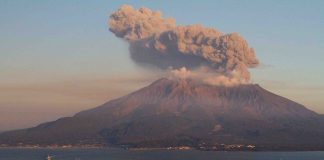Israel said it struck senior Hamas figures in Doha on Tuesday, in what appears to be the first known Israeli operation on Qatari soil since the group established its political office there in 2012.
The Israel Defense Forces (IDF) and Israel’s Shin Bet security agency described a “precise strike” against Hamas’s “senior leadership”. Videos from the city showed smoke rising over residential areas.
Israeli officials told Reuters the operation targeted top Hamas leaders including Khalil al-Hayya, the movement’s exiled Gaza chief and chief negotiator. Two Hamas sources said members of the group’s ceasefire negotiating team survived. There was no immediate official confirmation of casualties. The strike was reported near the Legtaifiya petrol station, by a small residential compound long guarded by Qatar’s Emiri Guard; blasts were also reported around Doha’s Katara district.
In a joint statement, the IDF and Shin Bet said those targeted had overseen operations for years, were “directly responsible” for the 7 October attacks, and that steps were taken “to mitigate harm to civilians”, citing the use of “precise munitions” and additional intelligence. Israel’s prime minister’s office later emphasised the action was a “wholly independent Israeli operation”, stating: “Israel initiated it, Israel conducted it, and Israel takes full responsibility.”
Qatar condemned what it called a “cowardly” and “criminal” assault that violated international law and threatened the safety of residents. The foreign ministry’s spokesperson, Majed al-Ansari, said Qatar “will not tolerate this reckless behaviour”, with a full statement posted on X. The United Nations secretary-general António Guterres described the strike as a violation of Qatar’s sovereignty and territorial integrity and urged a focus on securing a lasting ceasefire.
The timing is sensitive. Hamas negotiators were in Doha for consultations on a new US proposal for a ceasefire and hostage release when the attack occurred, according to reporting by CNN and others. The IDF has named the operation “Summit of Fire”. The US embassy in Qatar issued — then lifted — a shelter-in-place alert for its facilities after reports of missile strikes in the capital.
Prime Minister Benjamin Netanyahu said the strike was ordered after a Hamas-claimed shooting on the outskirts of Jerusalem a day earlier that killed six people. The group’s armed wing, the al-Qassam Brigades, publicly took responsibility for that attack on Tuesday.
There were conflicting accounts on potential fatalities. While some regional outlets suggested senior casualties, Reuters’ sources within Hamas said the Doha negotiating delegation survived. Officials in Israel and Qatar did not immediately release verified casualty figures. Given the target set and the location — a residential area adjacent to a guarded compound — confirming the outcome is likely to take time.
The strike risks complicating mediation efforts led by Qatar, Egypt and the United States. Qatar has hosted multiple rounds of indirect talks since late 2023, and has served as a principal channel for hostage negotiations. Analysts warned that any perception of Doha becoming a theatre for targeted killings could impede shuttle diplomacy and deter future delegations. Israel has argued that the Hamas leaders in question were orchestrating the war effort and bore responsibility for prior attacks.
US involvement was disputed. A senior Israeli official told CNN Washington was informed ahead of time; Israel’s public statement stressed the operation was entirely Israeli. Israel’s Channel 12 reported that President Donald Trump had given a “green light” for the strike, a claim carried by Israeli and international media, though the prime minister’s office did not attribute the decision to the US.
International reaction was swift. Saudi Arabia and the United Arab Emirates condemned the action as a breach of sovereignty; Turkey and others warned it undermined ceasefire talks. The UK voiced concern over escalation. The breadth of criticism underscored the diplomatic stakes for Israel’s widening regional campaign, which has included strikes in Lebanon, Syria, Iran and Yemen since the Gaza war began.
Doha’s status as a US major non-NATO ally and host to Al Udeid Air Base adds to the strategic sensitivity. Whether Israeli and Hamas officials will continue travelling to Qatar for negotiations remains unclear. With casualties unconfirmed and both sides signalling resolve, the immediate effect appears to be a further setback to efforts to broker a ceasefire and a comprehensive hostage release.



